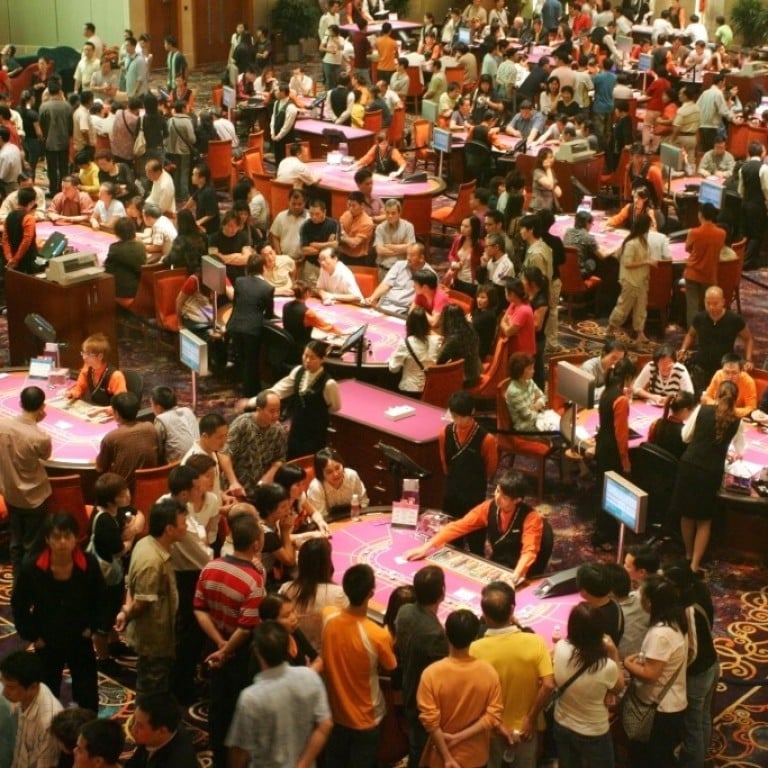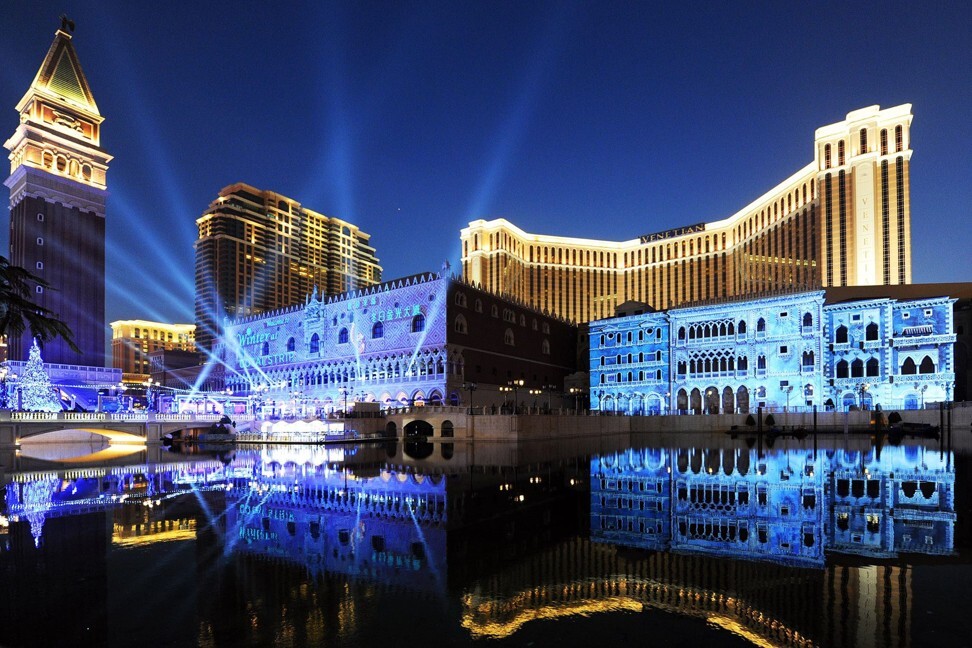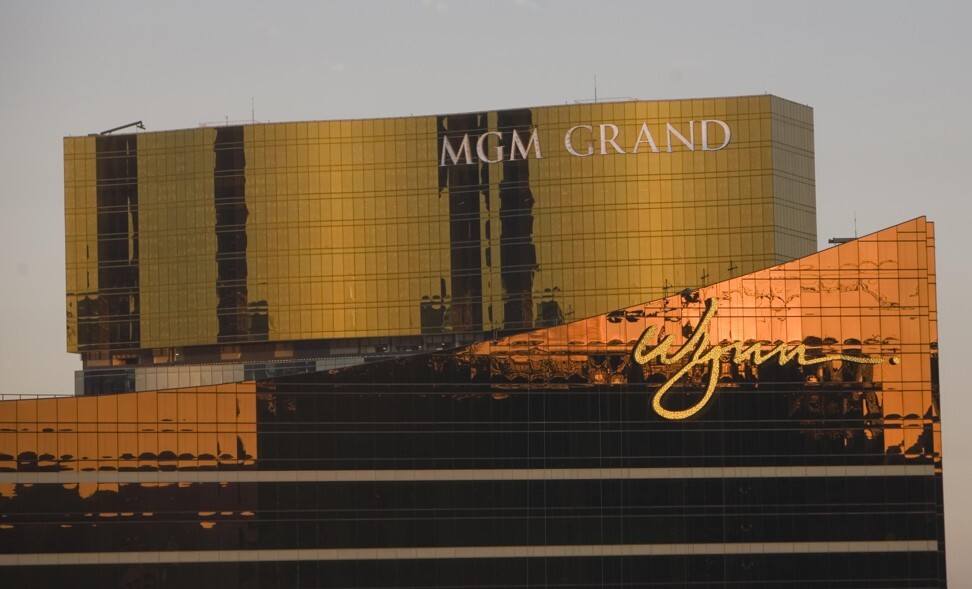
Macau’s casino stocks tumble in US$17 billion wipeout on plans to overhaul the world’s gambling hub
- An index that tracks six gambling stocks in Hong Kong and New York tumbled by 23 per cent, bringing its plunge this year to 45 per cent
- Sands China led the carnage, tumbling by 33 per cent while Wynn Macau, MGM China and Galaxy Entertainment fell by at least 20 per cent each
Macau’s casino stocks plunged in the Hong Kong market, losing as much as US$17 billion in market value in a single day after authorities in the world’s gambling hub proposed regulatory revisions to tighten their oversight of the industry.
An index that tracks the performance of six gaming stocks trading in Hong Kong and in New York tumbled by 23 per cent. The gauge has already declined by 45 per cent this year, as the outbreak of Covid-19 cases deterred gamblers and tourists to Macau.
Macau’s gambling revenue dropped 47 per cent in August from a month earlier. Guotai Junan Securities remains cautious on the sector, saying that the industry is unlikely to recover to the pre-pandemic level any time soon.

The massive sell-off came after the Macau government announced a public consultation involving five hearings sessions over the next 45 days to solicit public feedback on how to overhaul and manage an industry that contributes about 80 per cent to the territory’s annual tax receipts.
Proposals being considered include the appointment of government representatives to monitor daily operations at the casinos, and raising the minimum number of local directors in casino operators, according to the city’s Secretary for Economy and Finance Lei Wai Nong, at a press conference on Tuesday.

The woes in the gaming sector weighed on Hong Kong’s broader stock market, adding to China’s downbeat economic statistics data that contributed to the 1.8 per cent loss in the benchmark Hang Seng Index. Sands China, the operator of The Venetian Macao and The Parisian Macao, was the biggest decliner on the Hang Seng, contributing to almost 10 per cent of the decline in the gauge.
The sector’s rout is a new iteration of China’s regulatory risk, as the capital markets have been rattled by increased scrutiny of everything from fintech and e-commerce to technology, video games and online education over the past few months.
Casinos, anathema to Communist Party doctrine, are banned in mainland China. Macau first legalised gambling in the 1850s, and the city’s first consolidated casino opened in the 1970s under the former Portuguese colonial authorities. When Macau returned to Chinese sovereignty in 1999, the city’s casino operations and concessions were kept in place, due for renewal in 2022. Still, Chinese President Xi Jinping had made Macau’s casinos a target of his anti-corruption campaign since 2012, banning party cadres and government officials from gambling.
JPMorgan Chase cut its ratings on six casino operators to either “neutral” or “sell”, reversing its “overweight” call on July 20, citing investors’ doubt about the outlook of the industry amid the regulatory curb in the mainland.

